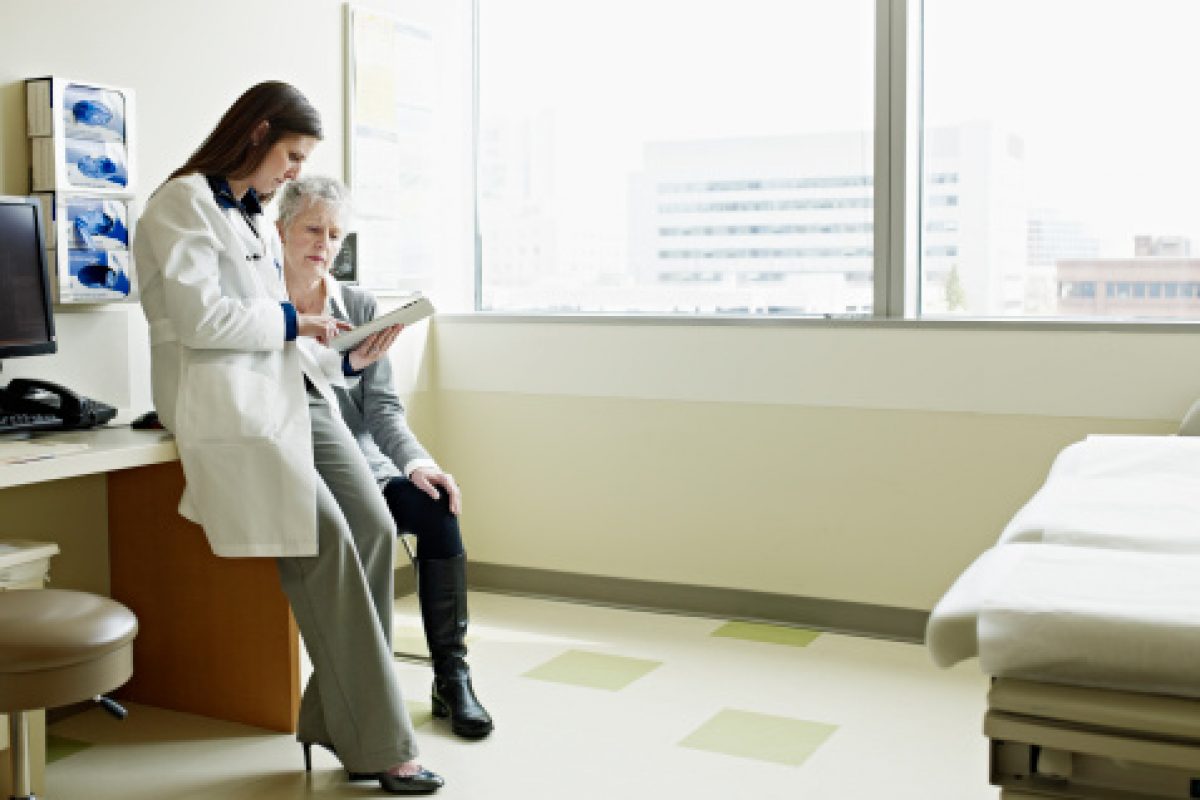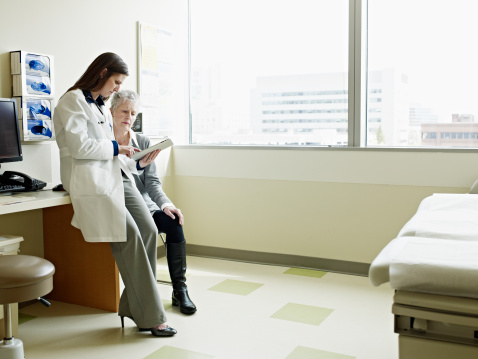Communications is one of the foundations of healthcare. Good communication is linked to improved patient satisfaction, adherence to medical recommendations, and health outcomes. Today, many health care professionals believe that communication is more effective when it is patient-centered, or responsive to a patient’s needs, values, and preferences.(1) While patient-centered communication is often described only in terms of individual clinician-patient interactions(2), health care organizations have a responsibility to facilitate patient-centered communication in all forms, including patient education materials, recording interactions, organizational signage, patient forms, and training providers to be better communicators.(3) Liberate Health has been proven in multiple clinical experience trials to help improve patient education outcomes by providing HCPs the ability to engage patients with high quality education content on a HIPAA compliant platform to record the HCP patient conversation and store them for the patient at an easily accessible portal to review again at home and share with family.
Improve visit productivity – Clearly communicate and document the instructions.(4) Liberate has been shown in clinical experience trials to reduce education time spent by >50%.(5)

Improve the patient experience – The duration of the visit is not nearly as important to patients as the quality of time spent face-to-face with the physician.(4) Liberate Health has been shown to improve engagement to produce higher patient satisfaction and clinical experience scores.(5)
Increase patient engagement – Patients do not understand, remember or comprehend most physician instructions leading to poor compliance and adherence. Liberate Health utilizes highly visual infographics to assist learning and reviewing the recorded encounter improves increases patient and caregiver understanding.(5)
Improve patient adherence – “Patient beliefs about medication were more powerful predictors of adherence.“ By engaging patients in the treatment discussion patients can be more empowered to comply with instructions.(6) Liberate has been proven to improve patient education outcomes.(5)
Fewer requests for expensive tests – Strong physician-patient relationships characterized by effective patient-centered communication skills report higher levels of patient trust in the doctor and lower levels of patient requests for expensive diagnostic tests.(7) Liberate has been shown to improve patient perception of trusting their healthcare provider.(5)
Fewer ER visits and hospital readmissions – Patients in strong patient-centered physician relationships are more likely to engage in the kinds of self care management behaviors which preclude ER visits and readmissions.(7)
Better patient outcomes – Diabetes disease patients of physicians with strong patient-centered communication skills are consistently found to report better A1C scores.8 Liberate has been proven to improve the physicians ability to effectively communicate with their patient in an intimate education encounter which builds trust.5
Patients already recording their encounter-Because every smartphone can record conversations, this may become even more commonplace. The motivation is often reasonable: patients want a recording to listen to again, improve their recall and understanding of medical information, and share the information with family members.(9) Liberate Health puts control of recording into the hands of the HCP and provides a HIPAA compliant portal for the patient to store and share their recordings.
Reduce malpractice risk – The majority of malpractice claims involve some form of communication breakdown between physician and patient.(10 )At the Barrow Neurological Institute, in Phoenix, Arizona, where patients are routinely offered video recordings of their visits, clinicians who participate in these recordings receive a 10% reduction in the cost of their medical defense and $1 million extra liability coverage.9

Reduce disparities in care – The evidence shows that physicians tend to be more paternalistic and directive when talking with ethnic patients, including sharing less information, compared to when communicating with white patients.(11) Liberate Health content is very visual and culturally diverse allowing the HCP to customize the discussion to the patient being engaged.
Increased reimbursement – CMS and many commercial payers now offer incentive payments for outcomes linked to patient-centered communications. Positive patient experience, reduced ER visits and hospital readmissions are measures for incentives (or disincentives) based on improving HCP communications.
Sources:
1. Stewart M BMJ. 2001 Feb 24; 322(7284):444-5.
2. Mead N, Bower P Patient Educ Couns. 2002 Sep; 48(1):51-61.
3. Epstein RM, Street RL. NIH Publication No. 07-6225. National Cancer Institute; Bethesda, MD: 2007. Patient-Centered Communication in Cancer Care: Promoting Healing and Reducing Suffering.
4. Dugdale, D. C., Epstein, R., & Pantilat, S. Z. Time and the patient-physician relationship. Journal of General Internal Medicine, 14 Suppl 1, S34-40. 1999.
5. Data and information supporting this document is on file. http://liberate.com/ Liberate Ideas, Inc 2017
6. Horne, R., & Weinman, J. Patients’ beliefs about prescribed medicines and their role in adherence to treatment in chronic physical illness. Journal of Psychosomatic Research, Vol. 47, No. 6, pp. 555–567, 1999.
7. Thom, D. H., Hall, M. a., & Pawlson, L. G. (2004). Measuring Patients’ Trust In Physicians When Assessing Quality Of Care. Health Affairs, 23(4), 124-132.
8. Stewart, M. . et al. (2000). The Impact of Patient-Centered Care on Outcomes. Journal of Family Practice, 49(No. 9), 1-9.
9. Elwyn, G., MD, PhD, Barr, PJ., PhD, Castaldo, M., JD, MPH (2017) Can Patients Make Recordings of Medical Encounters? What Does the Law Say. JAMA August 8, 2017 Volume 318, (6) 513-14
10. Levinson, W., Roter, D. L., Mullooly, J. P., Dull, V. T., & Frankel, R. M. (1997). Physician-patient communication. The relationship with malpractice claims among primary care physicians and surgeons. JAMA : the Journal of the American Medical Association, 277(7), 553-9.
11. Johnson, R. L., Roter, D., Powe, N. R., & Cooper, L. a. (2004). Patient race/ethnicity and quality of patient-physician communication during medical visits. American journal of public health, 94(12), 2084-90.


